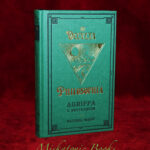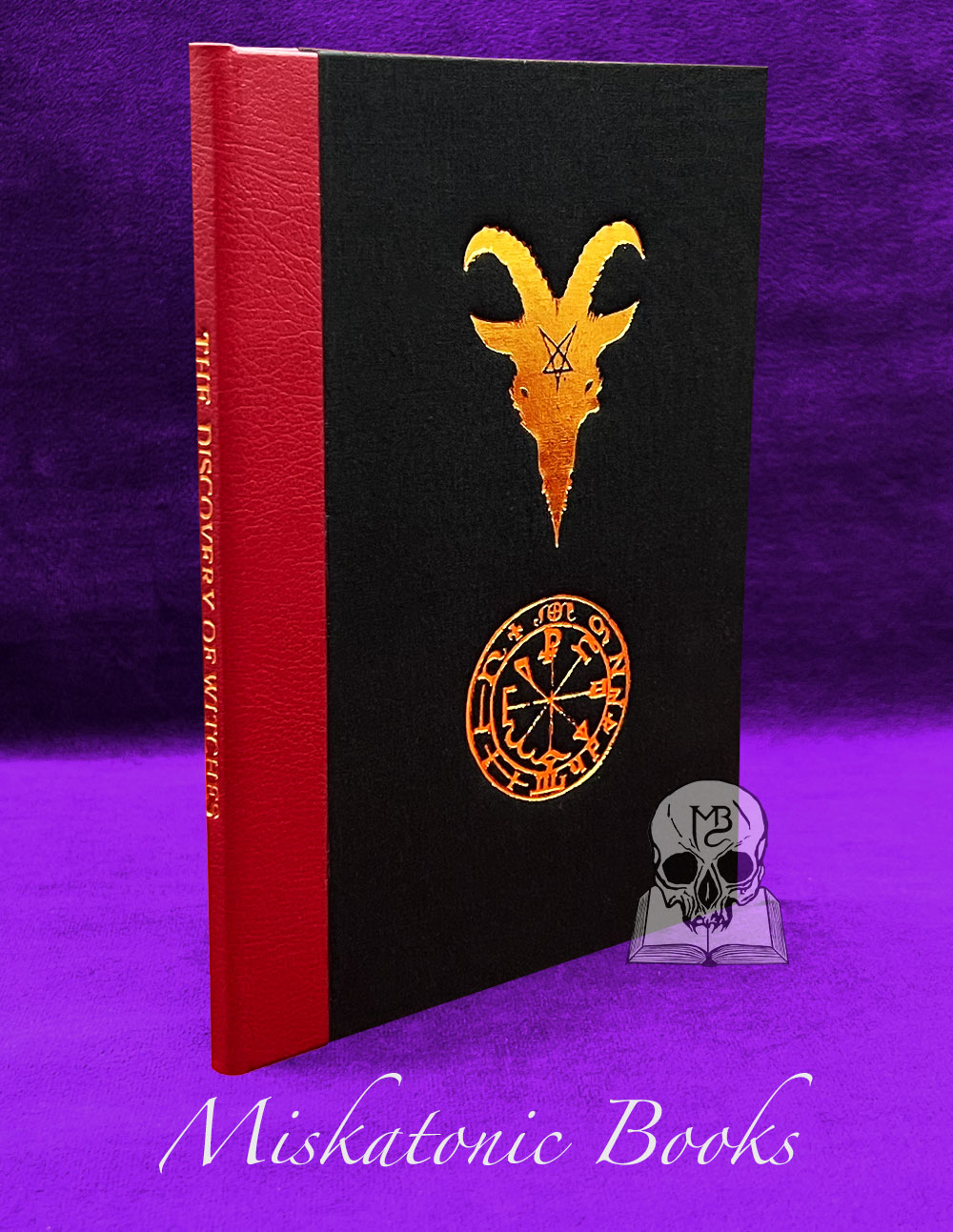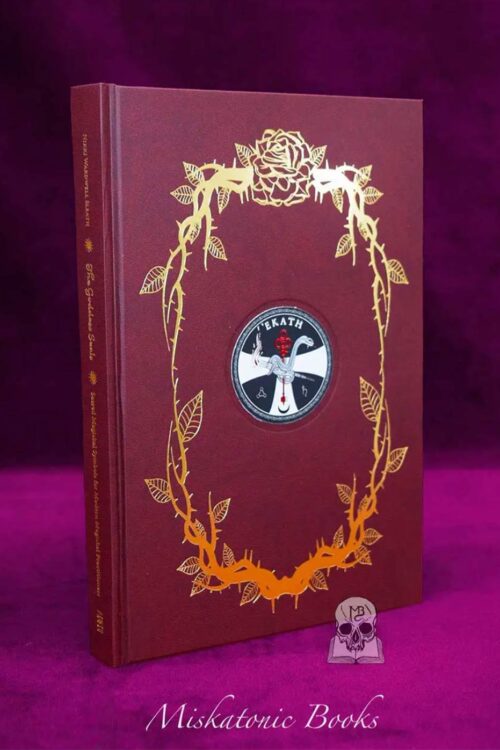$55.00
DE OCCULTA PHILOSOPHIA vol 1 by Agrippa – Hardcover Edition
In stock
Book is in fine condition.
Hardcover bound in Absinth-Green Geltex
Measures 100×160 mm
336 Pages
120 gram black Endpapers
Printed on 115 g wood free, age resistant Munken Premium Cream paper
Sewn Book Block
Black Bookmark and Headbands
Gilded on the front
Published by Blackletter Press
Description from the Publisher:
Heinrich Cornelius Agrippa’s ‘Three Books of Occult Philosophy’ has exerted a fascination for centuries. Our new translation from the Latin of the 1533 edition aims to make this foundational work accessible to a new, wider audience. We will be publishing the text in three volumes, along with a fourth containing the apocryphal ‘Fourth Book’, and other magical texts by, or attributed to, Agrippa.
Volume One is Agrippa’s treatise on ‘Natural Magic’, and describes how the elemental world we inhabit relates to the archetypal realm, and the wonderful ways that contact manifests in the natural world, and within ourselves. It is also an account of how we cannot know the world by reason alone, but by experience and experimentation in a spirit of wonder. For Agrippa, the scientific and the magical have yet to part ways.
 DE OCCULTA PHILOSOPHIA vol 1 by Agrippa - Hardcover Edition
DE OCCULTA PHILOSOPHIA vol 1 by Agrippa - Hardcover Edition
Sorry, no reviews match your current selections


In stock

In stock

In stock
Miskatonic Books | P.O. Box 204, Laurel MT 59044, United States
I wanted to begin my own journey with a formal introduction to western esotericism from none other than H. Agrippa.
Physically speaking, this small volume is aesthetically pleasing in the extreme, and feels good to hold. The ribbon bookmark was much appreciated.
Content-wise, we have a lot said on divination, astrology, and looking at the natural world with a mixture of early-modern “science” and mysticism, to name just a few topics. I found the mixture of pretty much total hearsay (and even the occasional unhinged assertion) with likely-verifiable information pretty interesting from an academic standpoint, as I’m a historian by education. The way educated people thought about knowledge in the 16th century was somewhat different from our own, and lacked the rigor some of us are now used to. However, and I found this to perhaps be the most important concept that the work teaches, Agrippa reminds us, tantalizingly, that: “…none of this can simply be learned from books, but rather must be learned from experience…” I’m paraphrasing here, but the point stands. We must experiment, and not just read. Practice makes perfect.
As far as the quality of the translation – I simply can’t comment, as I don’t speak, read, or write Latin, and can’t compare an original Latin text with Mr. Young’s work. I have read on the web that Mr. Young as a translator is rather unknown outside of BLP’s publications, but I found his translations of the various poems in the text to be interesting as he was able to maintain rhyming schemes and a measure of meter.
While it remains to be seen how I will use the information presented in this work, I will certainly be grabbing the other three volumes to round out the simple and mundane start to my own path.